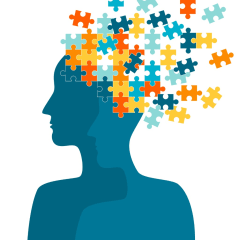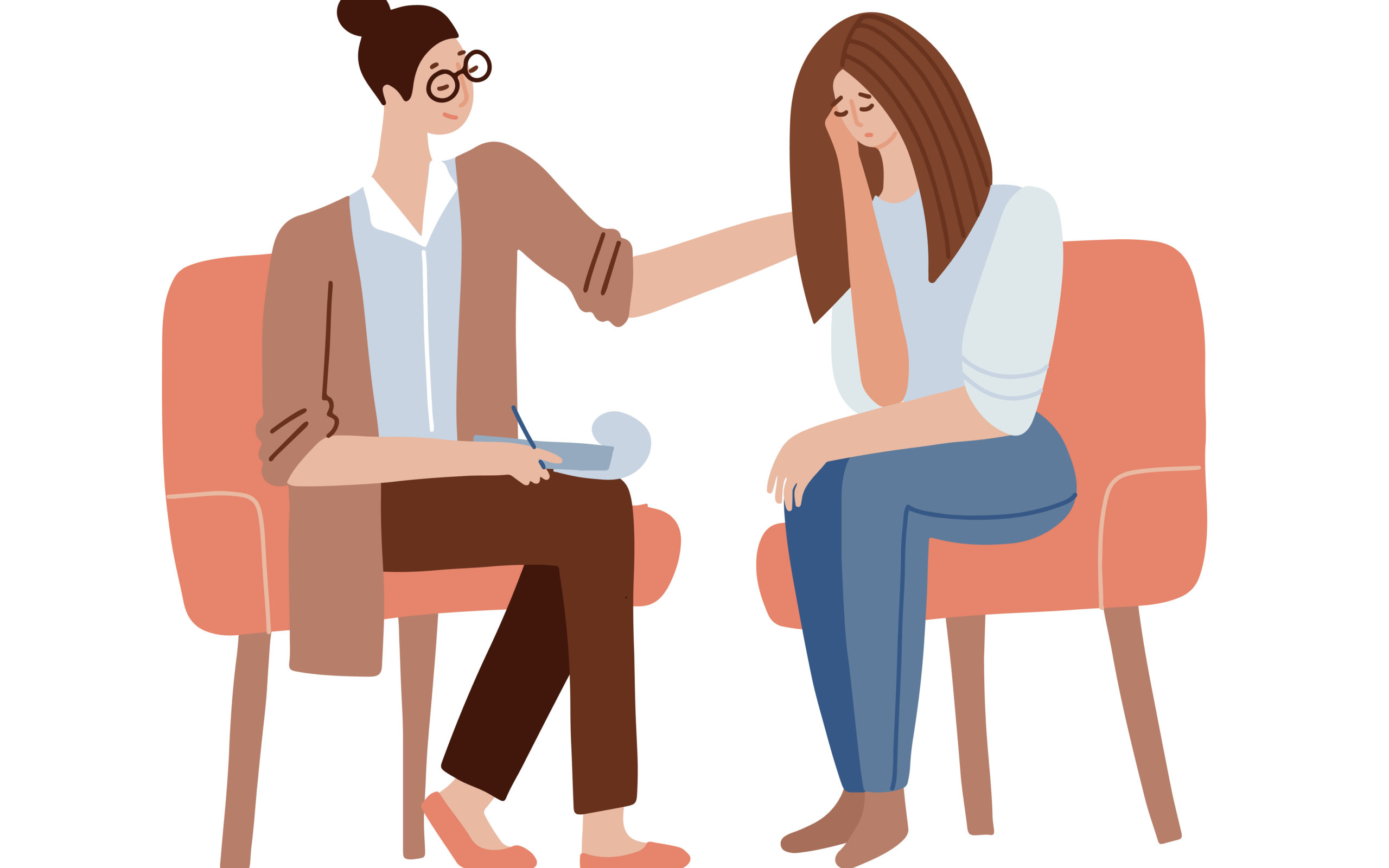Psych Therapy: A Comprehensive Overview to End Results and strategies

Cognitive-Behavioral Therapy
Cognitive-Behavioral Therapy (CBT) is an extensively utilized psychotherapeutic strategy that focuses on identifying and changing dysfunctional reasoning and habits patterns. Developed in the 1960s by Aaron T. Beck, CBT combines cognitive and behavioral concepts to deal with various mental health problems, including clinical depression, stress and anxiety, and stress-related disorders.
Methods such as cognitive restructuring, direct exposure therapy, and skill-building workouts are frequently utilized. Cognitive restructuring involves tough and modifying negative idea patterns, while direct exposure therapy aims to lower concern and stress and anxiety through gradual direct exposure to feared situations or things.
Evidence-based research supports the efficacy of CBT for a wide range of emotional conditions - Best Psychologist in Delhi. Its emphasis on ability acquisition and self-help techniques encourages clients to proceed development independently after treatment wraps up. The flexibility and efficiency of CBT have made it a keystone in contemporary psychotherapeutic technique
Psychodynamic Techniques
Rooted in the early concepts of Sigmund Freud, psychodynamic approaches concentrate on checking out the unconscious mind and its impact on habits and feelings. These techniques intend to uncover surprise thoughts and feelings that might be driving maladaptive behaviors and emotional distress. Central to this approach is the idea of internal conflict, frequently originating from unresolved past experiences, especially those from childhood.
Therapists using psychodynamic strategies employ a number of key techniques, consisting of totally free organization, where patients are motivated to talk openly to reveal unconscious product, and desire analysis, which interprets the unexposed content of dreams. In addition, the expedition of transfer and countertransference characteristics within the restorative partnership is essential. These communications can supply insights into the individual's inner world and relational patterns.
Psychodynamic treatment is typically longer-term compared to other methods, providing a deep and detailed understanding of the person's subconscious. Research indicates that it can be particularly effective for complex psychological health and wellness issues, such as individuality disorders and persistent depression. By fostering self-awareness and emotional insight, psychodynamic treatment seeks to bring unconscious material to consciousness, enabling individuals to achieve meaningful and enduring modification in their lives.
Humanistic Methods
Structure on the foundations laid by psychodynamic methods, humanistic methods offer a distinct perspective focused on specific prospective and self-actualization. Coming from the mid-20th century, these strategies prioritize the inherent goodness and development possibility of people, emphasizing a holistic sight of human experience. Trick numbers such as Carl Rogers and Abraham Maslow have actually substantially influenced this therapeutic method, which includes methods like client-centered treatment and Gestalt therapy.
Client-centered therapy, created by Rogers, plays an essential role in humanistic techniques. The specialist's function is even more of a facilitator than an authority, encouraging customers to harness their internal sources for healing.
Gestalt treatment, one more important humanistic strategy, highlights existing minute awareness and the combination of mind and body. By concentrating on the "present moment," clients get greater understanding into their present feelings and actions. Methods such as role-playing and led visualization are commonly employed to aid customers acquire a much deeper understanding you could try here of themselves, ultimately bring about enhanced self-awareness and satisfaction.
Integrative Treatments
Integrative therapies stand for a synthesis of numerous therapeutic techniques customized to meet the unique demands of each client. This technique recognizes the intricacy of human psychology and the multifaceted nature of mental health and wellness concerns. By integrating components from various schools of psychotherapy-- such as cognitive-behavioral therapy (CBT), psychodynamic therapy, and humanistic approaches-- integrative treatments offer a more flexible and holistic treatment paradigm.
Specialists of integrative therapy evaluate each client's particular requirements, signs, and personal history to develop a personalized treatment plan. This individualized approach boosts the possibility for healing success by resolving the source of mental distress and promoting overall health. Strategies could consist of mindfulness exercises, cognitive restructuring, and emotional handling, each picked to target various elements of the client's problems.
Additionally, integrative therapies emphasize the healing partnership, checking out the client-therapist bond as an essential element of efficient treatment. This relationship cultivates a helpful environment where customers really feel safe to discover and address their concerns. The flexibility of integrative therapies makes them ideal for a wide range of problems, including anxiousness, anxiety, injury, and social problems, thereby raising their applicability and efficiency in varied medical setups.

Determining Therapy Outcomes
Reviewing the efficiency of psychotherapy is critical for both customers and clinicians to make certain that the treatment is yielding the preferred outcomes. To accomplish this, various approaches and tools are used to measure treatment outcomes methodically. Standard evaluation tools, such as the Beck Depression Stock (BDI) and the Generalized Anxiety Condition 7 (GAD-7), give quantitative information on symptom intensity and changes in time.
Along with standardized tools, qualitative approaches like client self-reports and scientific interviews supply beneficial insights into the individual experiences and regarded progress of clients. On a regular basis scheduled examinations, typically at the beginning, navel, and end of therapy, help like this in tracking the trajectory of improvement or identifying locations requiring change.
Outcome measurement is not restricted to signs and symptom decrease; it additionally encompasses practical enhancements in day-to-day life, such as better interpersonal relationships, enhanced job performance, and boosted total health. Modern developments in digital health and wellness have introduced mobile apps and on the internet platforms that help with real-time tracking and comments, additionally fine-tuning the analysis procedure.
Inevitably, a thorough strategy to gauging treatment results makes sure that restorative treatments are efficient, effective, and tailored to meet the specific demands of customers, thus optimizing the overall healing experience.
Final Thought
Humanistic strategies focus on individual growth and self-actualization, while integrative therapies integrate several approaches for tailored therapy strategies. Reviewing therapy end results through standardized evaluations and qualitative approaches makes certain a detailed understanding of performance, ultimately assisting customers toward withstanding psychological health renovations.
From the structured technique of Cognitive-Behavioral Treatment (CBT) to the deep find here exploration of the unconscious in psychodynamic therapy, each approach brings one-of-a-kind benefits. Its focus on ability acquisition and self-help methods equips customers to continue progress separately after therapy ends (Best Psychologist in Delhi). Key figures such as Carl Rogers and Abraham Maslow have actually significantly influenced this restorative strategy, which encompasses methods like client-centered therapy and Gestalt treatment

Comments on “Discovering the Best Psychologist in Delhi: A Guide to Your Mental Wellness Trip”